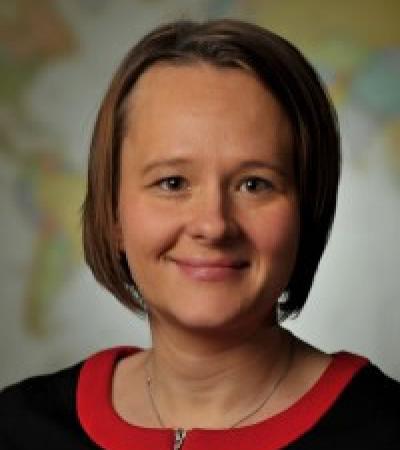Pamina Firchow (PhD, Graduate Institute of International and Development Studies in Geneva, Switzerland) joined the Notre Dame faculty in 2011 as the associate director of doctoral studies for the Kroc Institute for International Peace Studies. Previously, she taught at the University of Minnesota.
Firchow’s research interests include issues of security and development, peace and conflict, transitional justice, Latin American politics, revolution, and social movements. Her interest in Latin America is long-standing; currently, she is working on a book manuscript based on her doctoral research that examines uprisings by unemployed groups in Argentina around the 2001 economic crisis.
In addition, in a project that combines transitional justice and development, she is studying how international development agencies are involved in government reparation programs in Colombia. She is also looking at democracy promotion and development actors in Cuba.
“I was drawn to the Kellogg Institute by my interest in Latin America but also by its work on development,” says Firchow, who is exploring future collaboration with the Ford Program. “Development studies are a logical connection between Kellogg and Kroc. I would like to serve as a bridge between the two institutes.”
In addition to her PhD, Firchow holds an MSc in comparative politics from the London School of Economics and an MA in international relations and peace conflict resolution from the Universidad del Salvador in Buenos Aires, Argentina. A native speaker of German and English, she is fluent in Spanish and has a “good knowledge” of Italian and French.
Before entering academia, Firchow was active in the worldwide campaign to stop the spread of small arms and light weapons, working in the US, Europe and Latin America with the Federation of American Scientists, Saferworld, the Small Arms Survey, the Asociación para Políticas Publicas, and the Arias Foundation for Peace and Human Progress.
Spring 2012
Social movements and transitional justice
Theories of revolution, political violence, social movements, transitional justice, and development studies.






